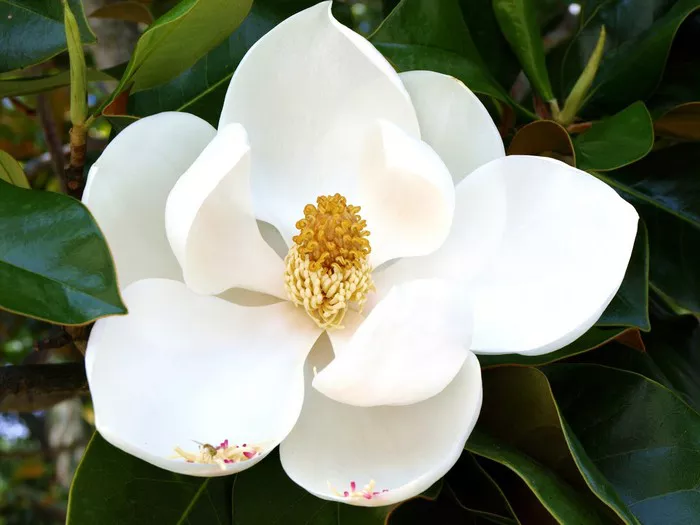Magnolia flowers, known for their elegant beauty and delicate fragrance, have been a subject of curiosity when it comes to culinary exploration. Their vibrant colors and unique flavor profiles raise the question: can you eat magnolia flowers? In this comprehensive guide, we delve into the various aspects of consuming magnolia flowers, exploring their edibility, culinary uses, potential health benefits, and precautions.
Edibility of Magnolia Flowers
Magnolia flowers are indeed edible, adding a touch of sophistication to culinary creations. Both the petals and the flower buds can be consumed, offering a subtle floral flavor with hints of citrus and spice. However, it’s essential to note that not all magnolia species are edible. Some varieties may contain compounds that could be harmful if ingested.
Culinary Uses
1. Salads: Magnolia petals can be used to garnish salads, adding a burst of color and a delicate floral aroma. They pair well with mixed greens, creating visually appealing and flavorful dishes.
2. Infusions: Magnolia flowers can be infused into syrups, teas, or cocktails, imparting their unique flavor profile. Magnolia-infused syrup can be drizzled over desserts or used to sweeten beverages.
3. Baking: Petals of magnolia flowers can be crystallized and used as edible decorations for cakes, cupcakes, and pastries. Their vibrant colors make them an excellent choice for adding a touch of elegance to baked goods.
4. Pickling: Magnolia buds can be pickled to preserve their flavor and texture. Pickled magnolia buds can be served as a condiment or added to salads and sandwiches for a tangy twist.
Health Benefits
While magnolia flowers are primarily enjoyed for their culinary appeal, they also offer potential health benefits:
1. Antioxidant Properties: Magnolia flowers contain antioxidants, which help combat oxidative stress and reduce the risk of chronic diseases.
2. Anti-inflammatory Effects: Compounds found in magnolia flowers may have anti-inflammatory properties, potentially reducing inflammation and supporting overall health.
3. Digestive Aid: Magnolia flowers have been used in traditional medicine to aid digestion and alleviate gastrointestinal discomfort.
4. Stress Relief: The delicate fragrance of magnolia flowers is believed to have calming effects, helping to reduce stress and promote relaxation.
5. Skin Health: Some skincare products utilize magnolia extracts for their purported benefits in promoting skin health and reducing signs of aging.
Precautions
Despite their culinary and potential health benefits, there are some precautions to consider when consuming magnolia flowers:
1. Pesticides: If harvesting magnolia flowers from the wild or purchasing them from non-organic sources, there may be a risk of pesticide contamination. It’s essential to ensure that the flowers are sourced from reputable sources or are grown organically.
2. Allergies: Individuals with pollen allergies may experience allergic reactions to magnolia flowers. It’s advisable to exercise caution when consuming them, especially if you have known allergies to other flowers or plants.
3. Toxicity: While many magnolia species are edible, some varieties may contain compounds that could be toxic if consumed in large quantities. It’s crucial to verify the species and confirm their edibility before incorporating them into culinary dishes.
4. Medicinal Interactions: If you have underlying health conditions or are taking medications, consult with a healthcare professional before consuming magnolia flowers, as they may interact with certain medications or exacerbate pre-existing health issues.
Conclusion
Magnolia flowers are indeed edible and offer a myriad of culinary possibilities. From salads to infusions, their delicate flavor and vibrant colors can elevate various dishes and beverages. Additionally, they may offer potential health benefits, including antioxidant and anti-inflammatory properties. However, it’s essential to exercise caution, considering factors such as pesticide exposure, allergies, toxicity, and potential interactions with medications. By understanding these considerations, you can safely explore the culinary and potential health benefits of incorporating magnolia flowers into your diet.


